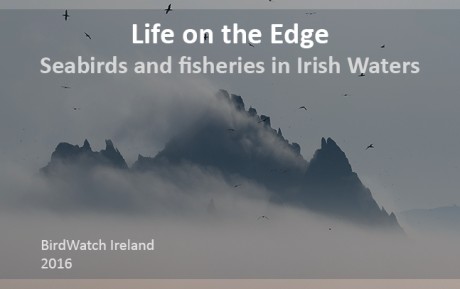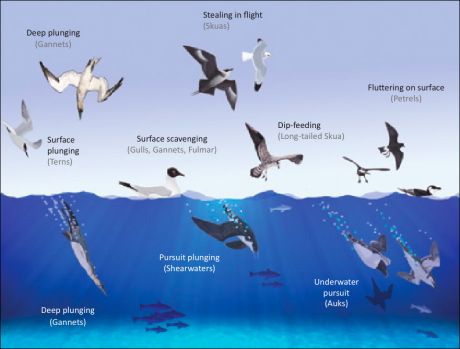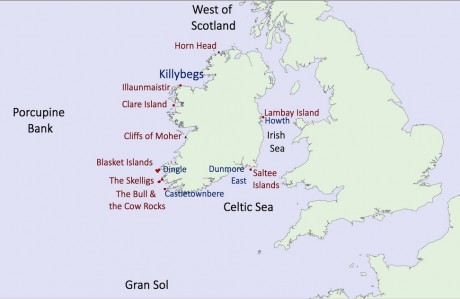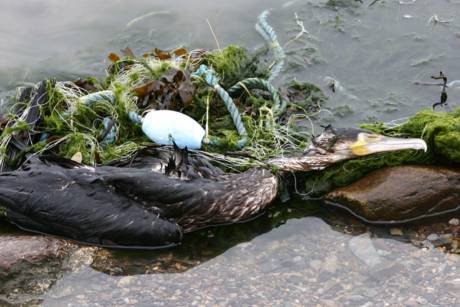 North Korea Increases Aid to Russia, Mos... Tue Nov 19, 2024 12:29 | Marko Marjanovi? North Korea Increases Aid to Russia, Mos... Tue Nov 19, 2024 12:29 | Marko Marjanovi?
 Trump Assembles a War Cabinet Sat Nov 16, 2024 10:29 | Marko Marjanovi? Trump Assembles a War Cabinet Sat Nov 16, 2024 10:29 | Marko Marjanovi?
 Slavgrinder Ramps Up Into Overdrive Tue Nov 12, 2024 10:29 | Marko Marjanovi? Slavgrinder Ramps Up Into Overdrive Tue Nov 12, 2024 10:29 | Marko Marjanovi?
 ?Existential? Culling to Continue on Com... Mon Nov 11, 2024 10:28 | Marko Marjanovi? ?Existential? Culling to Continue on Com... Mon Nov 11, 2024 10:28 | Marko Marjanovi?
 US to Deploy Military Contractors to Ukr... Sun Nov 10, 2024 02:37 | Field Empty US to Deploy Military Contractors to Ukr... Sun Nov 10, 2024 02:37 | Field Empty Anti-Empire >>
Indymedia Ireland is a volunteer-run non-commercial open publishing website for local and international news, opinion & analysis, press releases and events. Its main objective is to enable the public to participate in reporting and analysis of the news and other important events and aspects of our daily lives and thereby give a voice to people.
 Fraud and mismanagement at University College Cork Thu Aug 28, 2025 18:30 | Calli Morganite Fraud and mismanagement at University College Cork Thu Aug 28, 2025 18:30 | Calli Morganite
UCC has paid huge sums to a criminal professor
This story is not for republication. I bear responsibility for the things I write. I have read the guidelines and understand that I must not write anything untrue, and I won't.
This is a public interest story about a complete failure of governance and management at UCC.
 Deliberate Design Flaw In ChatGPT-5 Sun Aug 17, 2025 08:04 | Mind Agent Deliberate Design Flaw In ChatGPT-5 Sun Aug 17, 2025 08:04 | Mind Agent
Socratic Dialog Between ChatGPT-5 and Mind Agent Reveals Fatal and Deliberate 'Design by Construction' Flaw
This design flaw in ChatGPT-5's default epistemic mode subverts what the much touted ChatGPT-5 can do... so long as the flaw is not tickled, any usage should be fine---The epistemological question is: how would anyone in the public, includes you reading this (since no one is all knowing), in an unfamiliar domain know whether or not the flaw has been tickled when seeking information or understanding of a domain without prior knowledge of that domain???!
This analysis is a pretty unique and significant contribution to the space of empirical evaluation of LLMs that exist in AI public world... at least thus far, as far as I am aware! For what it's worth--as if anyone in the ChatGPT universe cares as they pile up on using the "PhD level scholar in your pocket".
According to GPT-5, and according to my tests, this flaw exists in all LLMs... What is revealing is the deduction GPT-5 made: Why ?design choice? starts looking like ?deliberate flaw?.
People are paying $200 a month to not just ChatGPT, but all major LLMs have similar Pro pricing! I bet they, like the normal user of free ChatGPT, stay in LLM's default mode where the flaw manifests itself. As it did in this evaluation.
 AI Reach: Gemini Reasoning Question of God Sat Aug 02, 2025 20:00 | Mind Agent AI Reach: Gemini Reasoning Question of God Sat Aug 02, 2025 20:00 | Mind Agent
Evaluating Semantic Reasoning Capability of AI Chatbot on Ontologically Deep Abstract (bias neutral) Thought
I have been evaluating AI Chatbot agents for their epistemic limits over the past two months, and have tested all major AI Agents, ChatGPT, Grok, Claude, Perplexity, and DeepSeek, for their epistemic limits and their negative impact as information gate-keepers.... Today I decided to test for how AI could be the boon for humanity in other positive areas, such as in completely abstract realms, such as metaphysical thought. Meaning, I wanted to test the LLMs for Positives beyond what most researchers benchmark these for, or have expressed in the approx. 2500 Turing tests in Humanity?s Last Exam.. And I chose as my first candidate, Google DeepMind's Gemini as I had not evaluated it before on anything.
 Israeli Human Rights Group B'Tselem finally Admits It is Genocide releasing Our Genocide report Fri Aug 01, 2025 23:54 | 1 of indy Israeli Human Rights Group B'Tselem finally Admits It is Genocide releasing Our Genocide report Fri Aug 01, 2025 23:54 | 1 of indy
We have all known it for over 2 years that it is a genocide in Gaza
Israeli human rights group B'Tselem has finally admitted what everyone else outside Israel has known for two years is that the Israeli state is carrying out a genocide in Gaza
Western governments like the USA are complicit in it as they have been supplying the huge bombs and missiles used by Israel and dropped on innocent civilians in Gaza. One phone call from the USA regime could have ended it at any point. However many other countries are complicity with their tacit approval and neighboring Arab countries have been pretty spinless too in their support
With the release of this report titled: Our Genocide -there is a good chance this will make it okay for more people within Israel itself to speak out and do something about it despite the fact that many there are actually in support of the Gaza
 China?s CITY WIDE CASH SEIZURES Begin ? ATMs Frozen, Digital Yuan FORCED Overnight Wed Jul 30, 2025 21:40 | 1 of indy China?s CITY WIDE CASH SEIZURES Begin ? ATMs Frozen, Digital Yuan FORCED Overnight Wed Jul 30, 2025 21:40 | 1 of indy
This story is unverified but it is very instructive of what will happen when cash is removed
THIS STORY IS UNVERIFIED BUT PLEASE WATCH THE VIDEO OR READ THE TRANSCRIPT AS IT GIVES AN VERY GOOD IDEA OF WHAT A CASHLESS SOCIETY WILL LOOK LIKE. And it ain't pretty
A single video report has come out of China claiming China's biggest cities are now cashless, not by choice, but by force. The report goes on to claim ATMs have gone dark, vaults are being emptied. And overnight (July 20 into 21), the digital yuan is the only currency allowed. The Saker >>
Interested in maladministration. Estd. 2005
 RTEs Sarah McInerney ? Fianna Fail?supporter? Anthony RTEs Sarah McInerney ? Fianna Fail?supporter? Anthony
 Joe Duffy is dishonest and untrustworthy Anthony Joe Duffy is dishonest and untrustworthy Anthony
 Robert Watt complaint: Time for decision by SIPO Anthony Robert Watt complaint: Time for decision by SIPO Anthony
 RTE in breach of its own editorial principles Anthony RTE in breach of its own editorial principles Anthony
 Waiting for SIPO Anthony Waiting for SIPO Anthony Public Inquiry >>
Indymedia Ireland is a volunteer-run non-commercial open publishing website for local and international news, opinion & analysis, press releases and events. Its main objective is to enable the public to participate in reporting and analysis of the news and other important events and aspects of our daily lives and thereby give a voice to people.
 Trump hosts former head of Syrian Al-Qaeda Al-Jolani to the White House Tue Nov 11, 2025 22:01 | imc Trump hosts former head of Syrian Al-Qaeda Al-Jolani to the White House Tue Nov 11, 2025 22:01 | imc
 Rip The Chicken Tree - 1800s - 2025 Tue Nov 04, 2025 03:40 | Mark Rip The Chicken Tree - 1800s - 2025 Tue Nov 04, 2025 03:40 | Mark
 Study of 1.7 Million Children: Heart Damage Only Found in Covid-Vaxxed Kids Sat Nov 01, 2025 00:44 | imc Study of 1.7 Million Children: Heart Damage Only Found in Covid-Vaxxed Kids Sat Nov 01, 2025 00:44 | imc
 The Golden Haro Fri Oct 31, 2025 12:39 | Paul Ryan The Golden Haro Fri Oct 31, 2025 12:39 | Paul Ryan
 Top Scientists Confirm Covid Shots Cause Heart Attacks in Children Sun Oct 05, 2025 21:31 | imc Top Scientists Confirm Covid Shots Cause Heart Attacks in Children Sun Oct 05, 2025 21:31 | imc Human Rights in Ireland >>
|
Life on the Edge: Seabirds and Fisheries in Irish waters
 national |
environment |
press release national |
environment |
press release
 Friday December 23, 2016 22:44 Friday December 23, 2016 22:44 by 1 of Indymedia by 1 of Indymedia

Press Release - 23rd Dec 2016 - Birdwatch Ireland
BirdWatch Ireland remains steadfast in calling for the sustainable management of Ireland's fish stocks. Our recently-published report, Life on The Edge, provides the background to some of the key issues and concerns we have regarding management of fisheries and protection of seabirds in Irish waters.
With mixed outcomes from this year's December Council in Brussels, in 2017 BirdWatch Ireland will continue to urge Minister Michael Creed to listen to the science and set sustainable catch limits for all stocks. He must provide justification for any decisions not to listen to the science, including the longer-term impact on the health of fish stocks and the social and economic well-being of coastal communities.
 Cover Image © Mark Carmody Seabirds in Ireland
Seabirds can provide vital clues as to what is happening beyond our horizons, beneath the seas surface, highlighting a pressure or threat that may otherwise go undetected. Ireland supports a rich maritime biodiversity and heritage located on the Atlantic edge of Europe, with an extensive coastline, many offshore islands and vast marine waters, fed by the Gulf Stream. Supporting some of the most iconic seabird colonies in Europe, seabirds can be found along Ireland’s coastline, inshore waters and right out beyond the shelf edge, with many species occurring in numbers of international importance.
Research has shown the availability and distribution of fish and other marine organisms are known to be important factors driving seabird distribution and abundance; with seabird survival, breeding success and chick growth all linked to food availability. Fish are integral to the life cycle of most seabirds making up a large component of their diet, using different strategies to catch fish, from the plunge-diving of the Northern Gannet from a height of tens of metres above the water, to shallow plunges used by terns and gulls, the pursuit-plunging of shearwaters and Northern Fulmars and the pursuit-diving of the auks. Some, such as Black-legged Kittiwakes, gulls, terns and European Storm-petrels dip and patter across the ocean surface while in flight feeding on items such as zooplankton, small fish and squid.
Irish fisheries
Making up almost 16% of the total extent of EU waters, Ireland’s natural marine habitats are vast. Fisheries in Irish waters are diverse, with many different techniques employed depending on the target species with most fish landed by Irish Vessels, being horse mackerel and mackerel, along with blue whiting, hake and herring (The Atlas of Commercial Fisheries Around Ireland, 2nd Edition).
The range of species caught in the waters of the continental shelf (up to 200m depth) include Nephrops (prawns), cod, haddock, whiting, megrim, plaice, black sole, herring and boarfish. Shelf edge species include anglerfish and hake with mackerel and horse mackerel caught on migration to the shelf edge to spawn. Pelagic species account for 71% of all fish landed and 35% of their value, with demersal species representing 38% of the total value of species landed into Irish Ports (Annual Report 2014 of the Sea Fisheries Protection Agency). Nephrops is the most lucrative stock in terms of landed value at almost €50 million in 2014.
Marine food webs risk collapse
The slippery slope of overfishing is changing the composition of our seas. By fishing down the food web and removing predatory fish from marine systems, fisheries have been transitioning to smaller plankton feeding fish including sandeels, young mackerel, sardines and sprats (collectively known as forage-fish). When fisheries target these smaller fish species, it not only puts pressure on seabirds that depend upon them, but effects the food abundance of the larger predatory fish species with the overall effect of hindering their recovery and unbalancing the entire marine ecosystem.
Setting correct fishing limits is fundamental to achieving the objectives of the Common Fisheries Policy (CFP). Multi-Annual Plans (MAPs) are the vehicle to deliver these objectives, through the adoption of an ecosystem-based approach to fisheries management, to ensure the long-term sustainable management of fisheries and end the focus on short-term gains that has long plagued EU fisheries. In Ireland, with its mixed fisheries, this may mean setting quotas (TAC) according to the most vulnerable stock.
Seabird Bycatch
The accidental bycatch of seabirds in fishing gears is the single greatest threat facing many seabird populations (BirdLife International), with very little information published on seabird bycatch in the waters around Ireland. Some fishing techniques adversely affect seabirds through increased risk of incidental drowning in fishing gear or collision with gear cables or where adults carry materials from discarded gears to nests where young chicks can become entangled. Fishing gears which are known to be problematic for seabirds (BirdLife International Seabird Programme) include gill nets, with more than 300 vessels ( <10m) using these gears in the Irish Fleet.
One less understood impact of fisheries, with indirect impacts upon seabirds, is the habitat damage caused by fishing gear with subsequent effects on benthic community structure and changes to marine food webs. Ideally seabird monitoring programmes should include measures of adult survival as well as breeding productivity in order ascertain the level of impact pressures such as overfishing and fishing methods will have on seabird populations in the longer term.
Restoring fish stocks and resilient seas
A better future for fisheries, fishing communities and marine wildlife, including seabirds, requires delivery of the ambitions of the CFP along with delivery of the provisions outlined in the Habitats and Birds Directives and the Marine Strategy Framework Directive.
The CFP success will depend on the commitment of Ministers and the fishing industry across Europe to take on board scientific advice and harvest fish at levels that will ensure the long-term survival and recovery of fish stocks. There is also a significant role for civil society to ensure the ambition for fisheries management is achieved.
Outlook for seabirds & Irish Fisheries
Annual monitoring of seabirds in Ireland is largely restricted to a few species at colonies along Ireland’s east coast. Detecting changes in seabird populations nationally, requires a more national-based monitoring scheme that will encompass key breeding colonies around the Irish coast. The frequency of monitoring for most seabirds is such, that detecting changes in populations is hampered by lack of up-to-date information on colony sizes and overall breeding success.
Where possible, seabird bycatch should be eliminated in fisheries operating in the EU and by EU fishing vessels. The CFP reform includes an obligation to collect and report data on seabird bycatch under the Multi-Annual Programme for Data Collection. National at-sea observer schemes, working to an effective protocol, need to play a key role.
Ireland, along with all Member States, must act without delay and recover all fish stocks above healthy levels as the positive consequences of sustainable exploiting fish resources are clear: better management can increase catches and hence deliver greater socioeconomic benefit to the fishing sector and help to better support the marine wildlife that depend on fish for their survival.
Download full report: http://www.birdwatchireland.ie/LinkClick.aspx?fileticket=SlJ1VfMzL6g%3d&tabid=1575

Feeding methods of Irish seabirds. © Michael O'Clery

Location of main fishing ports (blue), fishing grounds (black) and major seabird colonies (red) in Irish waters

Cormorant bycatch in fishing net. ©Paddy Dwan
|
 national |
environment |
press release
national |
environment |
press release
 Friday December 23, 2016 22:44
Friday December 23, 2016 22:44 by 1 of Indymedia
by 1 of Indymedia





























 printable version
printable version

 Digg this
Digg this del.icio.us
del.icio.us Furl
Furl Reddit
Reddit Technorati
Technorati Facebook
Facebook Gab
Gab Twitter
Twitter